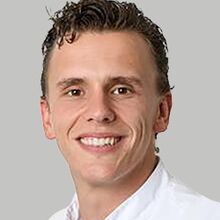Spotlight on the burden of flu for people living with diabetes
Why are people with diabetes more at risk from flu? What are the options for reducing the risk? What are the challenges and solutions to increase awareness across health care professionals, researchers and patients themselves? How did COVID-19 change the attention to viral infections in risk groups?
Listen to the insightful conversation among the experts and members of the Influenza Diabetes Community (IDC), Dr Marco Goeijenbier, Chair IDC, ESWI Board Member and medical doctor intensive care and medicine, together with Dr Kirsty Short, research fellow and head of the viral pathogenesis lab at the School of Chemistry and Molecular Biosciences, The University of Queensland, and Dan Howard, diabetes specialist nurse and Head of Care for Diabetes UK.
Aida Bakri: 0:00
Welcome to ESWI Airborne. This podcast is made possible thanks to the kind support of Sanofi Pasteur.
Clare Taylor: 0:24
Welcome all to ESWI Airborne. This is your host, Clare Taylor speaking, and this is the place to be to meet the members of ESWI, the European Scientific Working Group on Influenza. This is where we get all the latest news and insights on viruses, vaccines and more, directly, from ESWI's expert members of the scientific and medical communities working on these topics. Now, today is a special day because I have the pleasure of welcoming no less than three expert guests to the ESWI Airborne studio to discuss the importance of flu vaccinations for people living with diabetes. So, Marco, I'm going to start with you, and Marco, I would say you are one of the younger board members of ESWI and you graduated from the University of Amsterdam, the medical school, as recently as 2010, only 12 years ago and received your PhD in virology from the Erasmus University Rotterdam in 2015. So why did you choose to specialise in virology?
Marco Goeijenbier: 1:35
So thank you very much, Clare. Well, first of all, my actual specialisation is intensive care medicine. I just came out of a 24-hour shift, so if my speech is a little bit slurred, that's the reason why. But before I started internal medicine and intensive care, I did a PhD in virology. And the reason why is especially because viruses are everywhere. They play such a big role in human disease, in daily life anyway, and they're just so interesting to study.
Clare Taylor: 2:08
Okay, great. So you go all the way into intensive care now this is your main focus as a practitioner. Is that right?
Marco Goeijenbier: 2:18
Yes, yes, yes. So my daily work is in intensive care, and then I do quite some research on virology next to it say 25% of my time and then, of course, COVID-19 brought it all together.
Clare Taylor: 2:33
So you're quite a busy man, I would say. In addition to this, you're ESWI's lead member and chair of the influenza diabetes community. Now, what's the mission of this community, Marco?
Marco Goeijenbier: 2:46
So the mission of the influenza diabetes community is to actually try and involve all the players working on influenza and diabetes, from patient healthcare to basic scientists, to the ones that actually together. the communications with the patients or the patients' communities themselves. So get them all together
Clare Taylor: 3:07
Why do you want to get them all together?
Marco Goeijenbier: 3:09
A ctually to start the discussion and to keep the discussion going. Of course, everybody's working in their own field, have their own priorities and have their own ideas how to proceed on decreasing the burden of diabetes, of influenza in persons living with diabetes, and I think some of them are actually overlapping. Some work could be easier if we do it together and get them all together on the same table, in my eyes, is the way to go.
Clare Taylor: 3:39
Okay, great. So who else apart from ESWI is involved in the influenza diabetes community?
Marco Goeijenbier: 3:48
So we've got quite a big community now, but one of the two most active members are actually here today, which are Kirsty and Dan, so they join us.
Clare Taylor: 3:57
Hi Kirsty, Hi Dan, how are you? Good to be here in the studio. Thanks a lot for coming. Kirsty, you're a research fellow and head of the viral pathogenesis lab at the School of Chemistry and Molecular Biosciences at the University of Queensland, so please can you tell us a little bit about your group's research work on how people living with conditions such as diabetes and obesity are affected by severe viral infections?
Kirsty Short: 4:30
So that essentially sums up what we do. We're very, very interested in how chronic medical conditions, in particular diabetes and also obesity, influence your susceptibility to viral infections and what that means in terms of mounting a good immune response to viral infections and vaccinations and really looking at how we can improve that.
Clare Taylor: 4:53
And why are people living with diabetes, for example, at higher risk from influenza?
Kirsty Short: 5:02
So I guess a few sentences to summarise many years of research. It's largely blood glucose levels and certainly hyperglycemia plays a role. But what we found more recently is it's not just about your average blood glucose levels, but it's also about how many fluctuations you experience in your blood glucose levels, say in a day, and these periods of hyper and hypoglycemia can actually affect a component of your immune response. That's really important in viral infections, called CD8 T cells, and it really impairs their response and ability to protect you from viral infections.
Clare Taylor: 5:43
So then, what options are there for reducing the risk for people with these chronic conditions?
Kirsty Short: 5:51
So there's a few options. Firstly, in terms of a diabetes management option, what we would advocate is really trying to aim for, instead of a sort of good HbA1c or average blood glucose level, aim for controlled blood glucose levels and that's becoming more possible to measure with the wider availability of constant glucose monitoring devices. And then, more on a therapeutic perspective, really looking at therapies that can boost the T cell response and overcome some of these limitations that that immunity is facing in people with diabetes.
Clare Taylor: 6:28
Thanks, for that. Now I have to introduce the last of our kind of mystery guests now to the studio. Dan, your current role is as Head of Care for Diabetes UK and this, I understand, is the leading charity for people living with diabetes in the UK. So could you tell our listeners how does your organisation support people living with diabetes?
Dan Howarth: 6:57
Thanks, Clare. Yeah, that's right. We are the leading charity for people living with, affected and those at risk of diabetes in the UK. We support people living with and affected by diabetes on various different levels from the support groups that we have that people attend in their local communities. From influencing and pioneering new technologies and therapies within the NHS. From influencing policymakers in government to always make sure that people with diabetes are on the agenda and to give them that more often than not, very individualised information that helps them to manage their diabetes with great success, hopefully.
Clare Taylor: 7:50
Sounds like you're very engaged, all right, in this, and you have been working across many areas of diabetes management for about 20 years now. So, Dan, I'm curious, what got you started in this?
Dan Howarth: 8:04
Thanks, 20 years makes me feel a little bit old now. Absolutely must be, must be. You know, compared to yeah, I became a. I graduated as a nurse and always knew that I wanted to be a diabetes specialist nurse. I've had type one diabetes since I was 11 years old and I received some really, really good care at that time and I thought that that's how people should receive So it's all down to a, a pediatric diabetes nurse in Warrington in the UK. She into this and then, yeah, I've been across the world in various different settings and seen the different levels of care that people receive and I always think it's more than unfair when people in the UK receive particular standards of care and other people don't, just because of where they live.
Clare Taylor: 9:15
front lines, Dan?
Dan Howarth: 9:18
I mean in terms of influenza and flu vaccinations it's varied, very, very varied. There are some people that think because people with diabetes stretch right across the spectrum of personas, really, that we see a lot of people that think if you are young, fit and healthy with diabetes, then you're going to be young, fit and healthy with diabetes if you get flu. And they don't see that the flu will be the thing that potentially causes problems with the diabetes and then it's a vicious circle. So we see a varied, varied level of information and support. And that's why we approach it from a national level at Diabetes UK.
Clare Taylor: 10:07
Marco, I'd like to bring you in on this as well. What do you see on the front lines and what's the understanding of health care professionals? Do you think of these issues?
Marco Goeijenbier: 10:22
Well, so first of all, I think in the UK they're doing a great job. About healthcare workers, at least in the Netherlands, I think the knowledge is there, but maybe they do not set the priority right. And of course this has a lot to do with information they get, but also with the workload they have. For instance, tomorrow a large group of general practitioners in the Netherlands will actually protest against the administrative workload, the things a general practitioner or a health care worker per se has to do for insurance registration and so on and so on. And just think of it that for chronic illnesses you often have eight to ten minutes per person, and I think the vaccination part or the influenza prevention part often does not fit within those ten minutes. And I think that's where the challenge is to set the priority right.
Clare Taylor: 11:14
That's interesting, Kirsty, do you want to come in on that, see what you think, what level of understanding you think healthcare professionals have of the higher risks?
Kirsty Short: 11:40
I can give you the Australian perspective on this and really what I have noticed is that talking to specialists and, in particular, endocrinologists, is before COVID-19 when you talked about the risk that flu posed for people with diabetes, it was a little bit seen as, well, there are so many other complications and complex issues with managing diabetes. You know viral infections is not a priority, but I think what we've really seen with COVID-19 is that this matters. This is a vulnerable population group that we do need to protect and we do need to understand viral disease in these individuals. So what at least I'm sensing from my experiences is that certainly healthcare professionals are really receptive to understanding this interaction between diabetes and influenza, and that's really largely been played out by COVID-19.
Clare Taylor: 12:26
That's really interesting. But as we kind of come in on the topic of influenza vaccinations, do we see this lack of knowledge among healthcare professionals? Do you think that affects the influenza vaccination rates among this population? Marco?
Marco Goeijenbier: 12:50
Again, I'm not sure if it's really a lack of knowledge, and I do agree with Kirsty that COVID-19, of course, drew the attention more towards the vulnerability of these persons living with diabetes and the chance of more severe disease. I'm a little bit afraid, though, that the focus stays on COVID-19 now and that they do not translate this information towards, for instance, influenza or other viral infections. Now it's COVID and COVID's where the focus is.
Kirsty Short: 13:18
Well, I can tell you, for a country that's experiencing both COVID and flu peaks, people are very, very aware of the problems that flu can cause.
Clare Taylor: 13:29
Okay, interesting, Dan, do you want to come in on that?
Dan Howarth: 13:34
I totally agree with what my learned colleagues have already said as well. I think there's a couple of things to remember as well that it's in that consultation room of someone with diabetes and their health professional. There's not just the health professional in there with the knowledge, there's the people with diabetes.
Dan Howarth: 13:52
People with diabetes are experts in their own health and have an awful lot of knowledge and emotion of what they want. So they'll also think about their own experience of last year when they had the flu jab, whether it didn't go too well for them or whether there was no problems. They'll bring that, and I think there's something else as well that's surrounding both of these two experts is the system that's also in place. I know that our health systems vary greatly throughout the world. In the UK, people with diabetes get a free flu jab or flu vaccine at flu season, and I know that's very different in very different parts, but I also think that that helps, that gives people access to that. So, we've got the the health professional, the expert with diabetes of the person with diabetes and the system as well that they are surrounded by. That's really crucial.
Kirsty Short: 14:51
So interestingly, in response to our really bad flu and Covid season, Australia has just changed all its rules and now influenza vaccination is free to everyone, in recognition of the fact that it's really the best protection against flu and it's the best thing we can do when we're experiencing this really bad flu peak.
Clare Taylor: 15:14
That is a welcome development. All right, and, Kirsty, you mentioned that healthcare professionals are very receptive when you share the findings of your research with them, and what channels do you use to communicate your research findings with this population?
Kirsty Short: 15:40
So we I mean fundamentally, I guess we're a basic science lab, but we really spend a lot of time trying to make sure that our research has impact and translates back into better patient care and into a better understanding in the clinic. So we will do everything from giving talks at hospital ground rounds to talking to the media, to talking to diabetes organisations like Diabetes Australia and really trying to create awareness not just about the problem that influenza poses for people with diabetes, but also where we're at with the research and how far we've come in terms of improving the situation.
Clare Taylor: 16:17
And also on the topic of communication, I would like to ask Marco, what is IDC, the Influenza Diabetes Community, doing to communicate with networks of health professionals about this additional risk, about the vulnerability of people living with diabetes?
Marco Goeijenbier: 16:39
I think that that's the core question and also the core business of IDC. That's what we want to do, and how do we do it? Well, as much as possible, we're learning every time we meet and, for instance, when a member from the IDC has a very well working strategy to communicate to risk groups or to specific target groups like healthcare workers, we use the IDC meetings to present best case scenarios and learn from each other. These can be social media campaigns, these can be folders towards healthcare workers. We did symposia or online webinars, some more successful than others, but we're evolving as a community and we're trying to learn from each other, from different countries, different fields and different fields of expertise.
Clare Taylor: 17:27
OK, great thanks for that and, Dan, you really are a wonderful advocate, I would say, and I would like to have your opinion among what's the level of awareness among people living with diabetes of their additional vulnerability to the flu?
Dan Howarth: 17:47
I think that there is a predominantly large understanding that any type of infection that people living with diabetes get can cause problems with their diabetes. As I mentioned, they've got their own expertise within their own health. I think often we find that when someone living with diabetes does experience flu and it's not a very pleasant experience then that kind of gives them what we would call a wake-up call, and that's really unfortunate. We don't want them to have that wake-up call. We want them to prevent the need for this. So I think that everything that we are doing of hammering this home for want of a better term of making sure that people, health professionals and people with diabetes are aware of their vulnerability and aware of the best possible protection, which is through vaccination, then we have to keep on shouting about that I think.
Clare Taylor: 18:42
Well, and in the interest of hammering it home, I'm going to ask each of you to respond to this one: what changes in the level of awareness among healthcare practitioners do you hope to see over the next two to three years? So, Marco, let's start with you.
Marco Goeijenbier: 19:02
Well, I think that's a very interesting question. What I do hope to see is that prevention gets a more prominent role in daily care. So, rather than treating a current problem, trying to prevent it already, like Dan said, not experiencing disease, but be aware of the consequences of the disease and prevent it.
Clare Taylor: 19:26
Kirsty, how about you? What change blue skies thinking would you like to see in the next two to three years?
Kirsty Short: 19:31
So I guess two things, and I come at this from the research perspective, based on our research, I would really like to see increased emphasis on controlling variation in blood glucose level and giving patients the opportunity, in terms of CGMs, to actually monitor and respond to their own health. And then, from a research perspective, what I would really love to see is the rollout of combined vaccinations, where we can have flu and COVID together as one vaccine, flu, covid and RSV as one vaccine, because what we're seeing is that there's a lot of vaccine fatigue and that's sort of representing a barrier to vaccine uptake.
Clare Taylor: 20:15
Well, brilliant, you certainly know what you want. Now, Dan, how about you?
Dan Howarth: 20:20
I was going to say exactly what Kirsty said, but I think very much so I'd like to see people with diabetes getting the access to whatever means necessary to help their diabetes remain in target. That's what I'd like in the first place, so that if anybody does get the flu or any particular viral infections or anything, that they are going to be less likely to have severe complications. On that I'd also like to see vaccinations getting out to people. There's a lot of kind of expectation of going to the place to get your vaccine, and I think that people with diabetes are very clued up on their health and actually getting the vaccines to people with diabetes would be one way of increasing the uptake in an already high uptake population.
Clare Taylor: 21:16
OK, thank you. That's the last word on this topic for now, Marco, Kirsty, Dan, I wish you all the best with the work ahead of you. I very much get the sense that you're on a mission here. I've learned a lot, and I'm sure our listeners have too, so thanks so much for being with us on ESWI Airborne today.
Kirsty Short: 21:34
Thank you.
Clare Taylor: 21:39
Keep on tuning in to ESWI Airborne, the viral podcast series, for all the latest on diagnostics, pandemics, vaccination, influenza and more direct from the members of ESWI, the European Scientific Working Group on Influenza. Until next time, dear listeners, stay safe.
Aida Bakri: 22:03
ESWI Airborne is brought to you by ESWI, the European scientific working group on influenza and other acute respiratory viruses. These episodes would not be possible without the team's efforts and we would like to extend special thanks to our ESWI secretariat, our technical and IT teams, our arts team and our host, Clare Taylor. The podcasts are recorded virtually and we thank our guests for their participation in this inspiring series. Talks are adapted to a global audience and are intended to be educational. For any specific medical questions, please contact your local general practitioner. Many thanks to our sponsoring partners — and thank you for listening.

Nationality: Dutch
Position: Intensivist, Spaarne Gasthuis, Amsterdam, The Netherlands; and Senior Scientist, Erasmus MC, Rotterdam, The Netherlands
Research fields: Special interest in acute care and infectious diseases
ESWI member since 2016
Marco Goeijenbier completed his Ph.D. in virology, focusing on "Haemostasis and Virus Infection," at Erasmus University Rotterdam in 2015. He currently serves as a specialist in acute internal medicine and critical care at Spaarne Hospital in Haarlem, The Netherlands. His expertise spans various aspects of infectious diseases, particularly in critical care medicine and viral infections. In addition to his clinical work, Goeijenbier holds a research position at Erasmus MC in Rotterdam, where he mentors PhD students exploring critical care medicine and viral infections. His research interests focus on severe acute respiratory infection (SARI) pathogenesis, epidemiology, and their interaction with the coagulation system.
Some of Goeijenbier’s most published articles include:
- Presence of procoagulant peripheral blood mononuclear cells in severe COVID-19 patients relate to ventilation perfusion mismatch and precede pulmonary embolism
- Determinants of vaccination uptake in risk populations: A comprehensive literature review.
- Benefits of flu vaccination for persons with diabetes mellitus.
- Early Patient-Triggered Pressure Support Breathing in Mechanically Ventilated Patients with COVID-19 May Be Associated with Lower Rates of Acute Kidney Injury
Dr. Goeijenbier is ESWI’s lead member and Chair in the Influenza Diabetes Community (IDC). The IDC connects leading diabetes, patient, scientific, and professional organizations around the common aim of protecting persons living with diabetes from influenza and other viral respiratory diseases like COVID-19.
Starting January 2023, Dr. Goeijenbier has taken on the role of Chair of Medical Research and Education at Spaarne Hospital. Furthermore, since January 2024, Marco is the Editor in Chief for Nature Springer Tropical Diseases, Travel Medicine, and Vaccines.
- The Two-Way Street: When Respiratory Viruses Meet Chronic Illness
- When Infections Meet NCDs: The Bidirectional Relationship Between Cardiometabolic Conditions and Respiratory Viruses
- If you do not test, you will not know - a focus on COVID-19
- Essential skills and career prospects for early career scientists
- Uncovering the Contrasts and Connections in PASC: Viral Load and Cytokine Signatures in Acute COVID-19 versus Post-Acute Sequelae of SARS-CoV-2 (PASC)
- Can vaccinated individuals still get COVID?
- Is it dangerous to get an influenza and COVID-19 vaccine at the same time?
- Presence of procoagulant peripheral blood mononuclear cells in severe COVID-19 patients relate to ventilation perfusion mismatch and precede pulmonary embolism
- Burden of acute respiratory virus infections
- The Ninth ESWI Influenza Conference: Highlights
- The bidirectional relationship between influenza and diabetes mellitus
- Burden of disease - Long-Covid and other post-infection syndromes
- Virus infections, blood clots and bleeding
- Spotlight on the burden of flu for people living with diabetes
- What about respiratory virus infections? Prevention for people living with diabetes in Covid times
- COVID-19 Treatment and Medication
- Influenza in persons living with diabetes: Pathogenesis and prevention

Dr. Kirsty Short is an NHMRC research fellow and head of the viral pathogenesis lab at the School of Chemistry and Molecular Biosciences, The University of Queensland.
Dr. Short and her group focus on reducing the severity of emerging respiratory viral infections. Their group performs a large amount of research on the role of chronic metabolic conditions (namely diabetes and obesity) in severe viral infections. Their work also includes a focus on avian influenza (‘bird flu’) in the context of pandemic preparedness.
Their group also works with SARS-CoV-2 with a particular focus on the role of children in disease transmission, the development of novel therapies and reducing disease severity in patients living with diabetes and obesity.
- The Two-Way Street: When Respiratory Viruses Meet Chronic Illness
- What do B- and T-cells do and how do they respond?
- Should I get the influenza vaccine if I have diabetes and why?
- What is the difference between innate and adaptive immune response?
- Burden of disease - A focus on acute respiratory viruses in older adults
- Spotlight on the burden of flu for people living with diabetes
- Influenza in persons living with diabetes: Pathogenesis and prevention

Dan Howarth is the Head of Care for Diabetes UK. He has been a Diabetes Specialist Nurse (DSN) since 2005 and has been based in the UK, New Zealand and Belgium. He is a registered nurse in the UK, Australia, and New Zealand. Dan’s sub specialty is insulin therapy, young adults, and inpatient/emergency management. Dan completed his Cert in diabetes care at the University of Warwick at the start of his DSN career, and has since completed post grad advanced practice at the University of Auckland. He later completed an MSc in Diabetes Care at the University of Salford, Manchester.
Dan has worked with in most areas of diabetes management, including community and inpatient care in the UK. He moved to New Zealand to set up a young adult clinic and co-lead on the regional DAFNE group. After three years growing and evolving the MDT young adult service Dan returned to Europe and worked for the International Diabetes Federation (IDF). During his time at IDF in Brussels, Dan managed various global education projects which included regular training provided to health professionals across the world. Dan has been at Diabetes UK since April 2016, prior to that, he returned to the South Pacific and was clinical lead for inpatients at Waitemata DHB, Auckland, NZ. Dan thrives on the educating people about diabetes, so much so he continues this work in his own time and often volunteers with international charities in Palestine, India, South East Asia and the Pacific Islands.
Dan is a passionate rugby fan. He has played for various different clubs and is currently the club captain of his team in London.

Share
Topics
NCD / Risk Groups
Mediums
Networks


